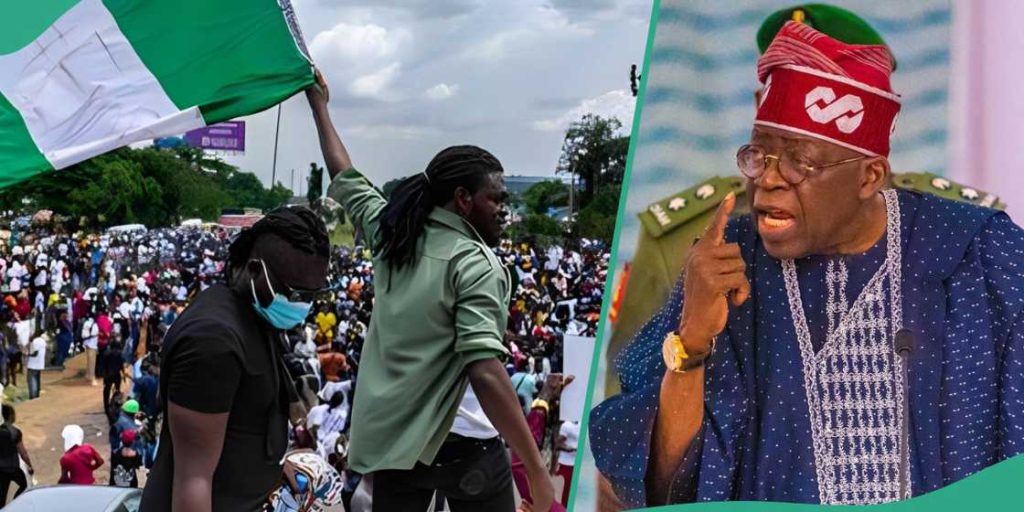Amid nationwide protests over surging food prices and living expenses, there has been a recent surge in criticisms of President Bola Ahmed Tinubu’s leadership. These critics accuse his administration of an inadequate response to the needs of Nigerians; however, they fail to acknowledge the significant measures taken by his government since May 29th, 2023. Despite persisting challenges, Tinubu’s leadership is characterized by crucial efforts aimed at tackling precisely those issues raised by protesters.
Since his inauguration, President Tinubu has shown an unwavering commitment to enacting reforms intended to reshape Nigeria’s socio-economic landscape. One notable achievement is the signing of the new minimum wage bill that raises the national minimum wage from ₦30,000 to ₦70,000, a move indicative of the administration’s intent to uplift the economic conditions of millions of workers. This decision came after extensive negotiations with labor unions and private sector stakeholders, demonstrating Tinubu’s willingness to engage and collaborate with various sectors of society.
Furthermore, the Nigerian Educational Loan Fund (NELF) has disbursed ₦850 million to educational institutions, building on the earlier disbursement of over ₦1.7 billion to approximately 20,000 students. The fund, which was approved with an initial investment of ₦35 billion, aims to support up to 1.2 million students, highlighting Tinubu’s focus on improving access to education as a means of fostering long-term economic growth.
In response to the significant challenge of food inflation, the Tinubu administration has taken concrete steps to ensure food security. Distributing 42,000 metric tons of food nationwide and promoting agricultural mechanization are measures that exemplify a proactive approach aimed at boosting agricultural production and securing food supplies. Recently, the government distributed 20 trucks of rice to each of Nigeria’s 36 states and the Federal Capital Territory, targeting the most vulnerable populations to help alleviate the impact of rising food costs.
The administration has also tackled the complex issue of fuel subsidies, a policy that has burdened Nigeria’s finances for years. By removing this long-standing subsidy, which cost the government approximately $10 billion annually, Tinubu aims to redirect funds toward critical sectors such as education and infrastructure. This bold decision, though met with public unrest, has received international acknowledgment from institutions like the World Bank, which noted its potential to enhance Nigeria’s economic stability and attract foreign investment by eliminating wasteful spending.
In conjunction with the subsidy removal, efforts to unify the exchange rate reflect the administration’s commitment to creating a more stable and predictable economic environment. This strategy is designed to attract foreign investment and support sustainable growth, despite the inherent challenges in loosening monetary controls.
Critics, including the Coalition of United Political Parties (CUPP), have argued that the president’s lack of direct engagement during the protests represents a failure of leadership. However, it is imperative to acknowledge the ongoing adjustments being made by the administration in response to economic conditions. The protests themselves underscore the urgent need for dialogue around socio-economic issues, and engaging with appropriate stakeholders is a critical component of a functioning democracy.
Although certain individuals might view the government’s actions as inadequate, it is crucial to acknowledge that implementing systemic change necessitates extensive and continued work. President Tinubu has introduced numerous reforms aimed at fundamentally transforming Nigeria’s economic landscape over time, indicating a forward-thinking mindset rather than simply reacting hastily to pressing demands.
It is clear that President Bola Ahmed Tinubu has made considerable efforts to confront Nigeria’s urgent problems. His policies demonstrate a dedication to change and advancement with an awareness that major transformations take time.

